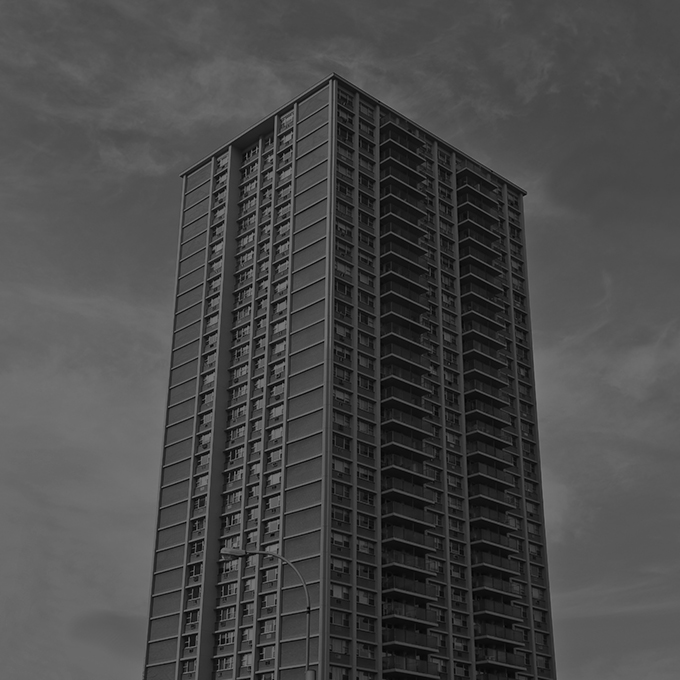RISING APARTMENT CONSTRUCTION COSTS
REMI - Erin Ruddy
Multi-residential construction costs are rising in Canada due to the pandemic’s far-reaching impact on everything from labour and material costs to shifting supply and demand dynamics. According to new research from Altus Group, housing developers in the Greater Toronto Area will likely feel the greatest strain with overall costs associated with construction projected to rise by 5 per cent by the end of the year. Meanwhile, other Canadian markets will see slightly lower cost increases ranging from 1 to 4 per cent.
“The costs of apartment construction are expect to go up by 5% in Canada.”
“The pandemic has impacted many factors that contribute to construction costs,” observes David Schoonjans, Senior Director, Cost & Project Management at Altus Group. “Labour productivity has suffered due to physical distancing requirements and workflow interruptions, with the reduced productivity resulting in more labour hours and thus higher labour costs.”
In terms of material costs, Schoonjans says COVID-19 restrictions are continuing to disrupt global supply chains, causing some material costs to escalate. Shifting patterns of demand have also contributed to shortages and increased costs. As an example, he points to the heightened lumber demand we’ve seen throughout 2020 and 2021 fuelled by the shift to single-family home construction and rampant home improvement projects—a trend that continues to exacerbate supply as lockdown measures persist.
“The pandemic has impacted many factors that contribute to construction costs,” observes David Schoonjans, Senior Director, Cost & Project Management at Altus Group. “Labour productivity has suffered due to physical distancing requirements and workflow interruptions, with the reduced productivity resulting in more labour hours and thus higher labour costs.”
In terms of material costs, Schoonjans says COVID-19 restrictions are continuing to disrupt global supply chains, causing some material costs to escalate. Shifting patterns of demand have also contributed to shortages and increased costs. As an example, he points to the heightened lumber demand we’ve seen throughout 2020 and 2021 fuelled by the shift to single-family home construction and rampant home improvement projects—a trend that continues to exacerbate supply as lockdown measures persist.
According to Altus Group’s research, Vancouver construction costs will likely increase by 3 per cent by the end of the year before falling back to approximately 2 per cent by 2023 given the pace of construction in Q1.
Similarly, Calgary and Edmonton construction costs will likely increase between 2 and 3 per cent by year’s end, where it will remain steady through 2023. In these cities, Altus Group says cost increases will be supported by the ongoing construction of some of the mega projects underway including the BMO Centre expansion, the new Calgary Event Centre (arena), the new Green Line public transit project in Calgary, and the South Edmonton Hospital and Blatchford Metro Line Extension in Edmonton.
In Ottawa and Montreal, the group expects overall construction costs to increase between 3 and 4 per cent for the year, with an estimated range between 2 to 5 per cent that may moderate somewhat by 2023. In Halifax, overall construction costs will likely increase between 2 to 3 per cent where it will remain for the next two years.

RETAIL SALES UP IN CANADA
StatsCan
Retail sales were up 4.8% to $55.1 billion in February. Sales increased in 9 of 11 subsectors, led by higher sales at motor-vehicle and parts dealers and gasoline stations. Core retail sales—which exclude gasoline stations and motor-vehicle and parts dealers—rose for the first time in three months, increasing 3.8% in February on higher sales at general merchandise stores and at clothing and clothing accessories stores. In volume terms, retail sales increased 4.3% in February.
Amid the ongoing COVID-19 pandemic in Canada, provincial governments continued to enact public-health measures in several regions across the country that directly affected the retail sector. Based on respondent feedback, approximately 12% of retailers were closed during February. The average length of the shutdown was two business days. Despite these challenging times, most respondents reported their sales figures, and Statistics Canada thanks them for their continued cooperation.
Sales at motor-vehicle and parts dealers increased for the second consecutive month, rising 5.0% in February. The increase was mostly because of higher sales at new car dealers (+5.6%) and automotive parts, accessories and tire stores (+9.2%), some of which were closed in January as a result of lockdowns in select regions. In contrast, sales at other motor vehicle dealers contracted 2.3% in February.
Clothing and clothing accessories stores also contributed to the increase in core retail, rising 23.7% in February—its first gain since September 2020. Sales were up in all three subcategories, coinciding with the easing of COVID-19 lockdown restrictions on non-essential retailers and malls in many parts of the country. In February, approximately 39% of clothing and clothing accessories stores reported having been closed for an average of 6 days, compared with 48% of those retailers who reported closures for an average of 13 days in January.
On an unadjusted basis, retail e-commerce sales were up 92.0% year over year to $3.1 billion in February, accounting for 6.8% of total retail trade. The share of e-commerce out of total retail sales was 1.3 percentage points lower in February, as more brick-and-mortar stores were allowed to open their doors to in-person shopping.
CAPITAL GAINS INCREASE - IF NOT WHEN
GLOBE AND MAIL - Brenda Bouw
The threat of a higher capital gains tax rate is resurfacing in conversations between financial advisors and their clients as Ottawa looks for ways to pay down a soaring deficit amid billions in spending on pandemic-relief measures.
There has been speculation ahead of each federal budget in recent years that the Liberal government will increase the so-called capital gains inclusion rate, currently at 50 per cent, which is the percentage of capital gains included in taxable income. However, advisors say the unprecedented spending on COVID-19 programs, which has pushed the projected size of the deficit to almost $400-billion, makes a capital gains tax increase more likely.
“I wouldn’t be at all surprised if we see that in the coming budget,” says Rona Birenbaum, founder and certified financial planner at Caring for Clients, a fee-for-service financial planning firm in Toronto.
“The capital gains inclusion rate is by no means a sacred cow, and I suspect it is perpetually on the table as a way to increase tax revenue without having to increase personal marginal tax rates,” says Jason Nicola, a financial advisor at Nicola Wealth Management Ltd. in Vancouver. He reminds investors that there was no capital gains tax until 1972, when it was introduced at the 50-per-cent rate. It was then increased to 66.67 per cent in 1988 and then to a high of 75 per cent in the 1990s. In 2000, it dropped twice, first to 66.67 per cent and then to 50 per cent, which is where it stands today.
Mr. Nicola says investors thinking about selling taxable assets in the near term, such as non-registered stocks or a secondary residence, might consider acting before the budget, which is usually released in March or April each year.
Ms. Birenbaum agrees investors should only sell assets sooner rather than later if it’s part of their business, retirement or estate plans. “Everyone should be looking at their plans for [the coming] year. If they would need to sell investments that trigger a capital gain, it might be worth selling ... before the next budget just to mitigate the risk,” she says.
FOR SALE FROM THE APARTMENT GROUP
Centurion Starlight Sale - Oshawa/Ottawa - $92MM / $279,680 Per Suite
This sale was for three apartment buildings - two in Oshawa (333 Simcoe Street North, 1140 Mary Street North) and one in Ottawa (550 Langs Road). The buildings range for 6 to 11 stories and all are concrete dating for the 1960's. Many suites in the buildings have been renovated and most of the buildings were in decent shape for their age being professionally owned and managed for years. It appears that this was not fully marketed.
831 Kennedy Road – Scarborough – $14,350,000 / $287,000 Per Suite
This is a 6 storey concrete rental apartment building constructed in 1961. The building has a masonry exterior, double windows, balconies, flat roof and an elevator. The asset has 50 suites in a mixture of one, two and three bedroom styles. Heating is gas fired hot water. The building has been is the same ownership for many years and the rents were far below market. The property was fully exposed on the market and was purchased by Hazelview Properties formerly Timbercreek Asset Management.
Wingreen Court – North York – $35,900,000 / $363,300 Per Suite
Situated near the intersection of Don Mills and Lawrence this 3.25 acre site is improved with 9 low rise walk up rental apartment buildings dating from the 1950's. These are vintage "plexes" on a large acreage with surface parking and parking garages. The buildings contain a mixture of one and two bedroom suites and the overall condition of the assets was considered good. Rents were below market and occupancy was close to 100%. The Seller had owned the assets for many decades and listed the property for sale and was fully marketed. The Purchaser was a private investor.
95 Kennedy Road North - Brampton – $12,900,000 / $293,200 Per Suite
This is rental apartment building located in north central Brampton and consists of 44 suites (one and two bedroom) and one elevator. This 8 storey concrete building sits on over 0.96 acres of land and has surface and underground parking. The property had been self managed and rents were far below market at the time of sale. The building was considered to be in average condition for its age. The assest was fully exposed to the market and was purchased by a private investor group.
THE APARTMENT GROUP
Together the team has completed over 1,500 transactions and has sold over $6.5 billion in apartments and development land. Put us to work for you and see the results. NO ONE has sold more buildings then our group. Experience, knowledge and professionalism will insure you get the right deal or the highest price if you are selling.
The Apartment Group is a dedicated team of professionals specializing in the sale of multi-residential investment properties. With over 40 years of combined experience, the team brings together their strengths including strong negotiation and sales skills along with highly technical market analysis and appraisal methods.
We are a boutique Brokerage but have the capabilities of the larger houses without the overhead. We have: an internal database of over 10,500 active apartment and land Buyers; a list of all apartment building owners in the Greater Toronto Area; our web site gets over 50,000 hits a month; we highlight properties for sale through our newsletter which reaches 10,000 investors monthly.
MITCHELL CHANG
President & Owner,
Salesperson
Direct: 416-907-8280
mchang@cfrealty.ca
LORENZO DIGIANFELICE, AACI
Broker of Record, Owner
Direct 416-907-8281
ldigianfelice@cfrealty.ca
JAKE RINGWALD
Salesperson
Direct 416-996-7713
jringwald@cfrealty.ca


